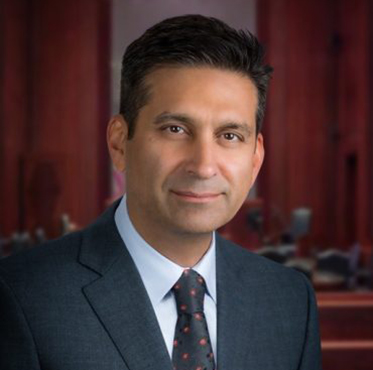Estate planning is an essential step in securing the financial future of your loved ones. Two of the most commonly used estate planning instruments are wills and trusts. While both serve to distribute assets and protect beneficiaries, they function in distinct ways and serve different legal and financial purposes.
When you’re interested in creating an estate plan, including will and trust documents, seek legal guidance. Hiring an Orange County estate and trust lawyer is important for ensuring your assets are properly managed.
What is a Will?
A will, also known as a “last will and testament,” is a legal document outlining how an individual’s assets should be distributed upon their death. It allows the testator (the person making the will) to specify who will inherit their property, appoint an executor to manage the distribution of the estate, and name guardians for minor children and caretakers for pets.
Some of the key details of a will include:
- Goes into effect upon death: A will only becomes legally effective upon the testator’s death. Until then, it has no bearing on how assets are managed.
- Requires probate: The estate must go through the probate process, which is a court-supervised procedure that ensures the will is valid and assets are distributed accordingly.
- Allows for specific instructions: Wills can be used to designate beneficiaries, appoint guardians for minor children, and specify final arrangements.
- Can be revoked or amended: A will can be modified or revoked at any time before the testator’s death, provided they are of sound mind.
- Limited asset protection: Assets distributed through a will are not shielded from creditors or lawsuits.
A will can have several benefits and provide essential information after your death. If you’re interested in drafting a will, an estate planning attorney can help ensure your document is comprehensive and legally sound.
What is a Trust?
A trust is a legal arrangement in which a grantor (the person creating the trust) transfers assets into a trust to be managed by a trustee for the benefit of designated beneficiaries. Trusts can be established during the grantor’s lifetime (living trusts) or take effect upon their death (testamentary trusts).
Some of the most important details regarding trusts include:
- Can take effect during life or death: Unlike a will, a trust can be active while the grantor is still alive (revocable living trust).
- Avoids probate: Assets placed in a trust are not subject to probate, allowing for a faster and more private distribution of assets.
- Provides asset protection: Certain trusts offer protection from creditors, lawsuits, and other legal claims.
- Offers control over distribution: A trust can dictate when and how beneficiaries receive assets, making it useful for managing distributions to minors or individuals who may not be financially responsible.
- Can be revocable or irrevocable: A revocable trust allows the grantor to maintain control and make changes, whereas an irrevocable trust cannot be altered without beneficiary consent.
- Can help reduce estate taxes: Properly structured trusts can help minimize the tax burden on heirs.
A trust is a fantastic estate planning tool offering numerous advantages. Depending on your needs and goals, a trust attorney can help you choose the type of trust that’s right for you, from living and testamentary trusts to charitable and special needs trusts.
Key Differences Between Wills and Trusts
While both wills and trusts serve as estate planning tools, they differ in significant ways. Some of the most notable differences between the two include the following:

- Probate: A will is a document that directs the distribution of assets upon death and requires probate, whereas a trust allows for more controlled and efficient asset management, often avoiding probate.
- When they take effect: A will takes effect only after death, while a trust can be utilized during the grantor’s lifetime or after death.
- Public record: Since wills must go through probate, they become part of the public record, whereas trusts remain private. This means a will’s contents, including named beneficiaries and asset distributions, can be accessed by anyone, but a trust allows for confidentiality.
- Asset protection: Another critical distinction is the level of asset protection. A will does not protect assets from creditors or lawsuits, but certain types of trusts, such as irrevocable trusts, can safeguard assets from these threats.
- Contests: Wills can be contested in court, leading to lengthy and expensive legal disputes, whereas trusts are much harder to challenge.
- Flexibility: Flexibility is an important factor to consider. A will can be revised at any time before the testator’s death, while a trust’s flexibility depends on its type. A revocable trust allows changes and revocations, while an irrevocable trust is typically permanent.
- Timing: Since wills require probate, asset distribution can be delayed, often taking months or years to finalize. In contrast, trusts allow for immediate asset distribution, avoiding probate-related delays and costs.
- Incapacity: A trust is beneficial for managing assets in cases of incapacity. If a person becomes incapacitated and only has a will, a court may need to appoint a guardian to manage their affairs. However, a trust ensures that assets are managed by a designated trustee without court intervention.
Wills and trusts differ, offering numerous pros and cons. However, because both documents offer so many advantages, many parties choose to create both a will and trusts to accomplish a more complete estate plan.
When is the Best Time to Create a Will or Trust?
The best time to create a will or a trust depends on individual circumstances, but generally, estate planning should begin as soon as one accumulates significant assets or has dependents. Certain life events may indicate it’s time to consider these estate planning tools, such as:
- Marriage or divorce: To ensure your spouse (or former spouse) is or isn’t included in your estate plans.
- Birth of a child: To name guardians and set up financial provisions for your child’s future.
- Accumulation of significant assets: To protect wealth and minimize taxes.
- Starting a business: To ensure a smooth transition in case of death or incapacitation.
- Retirement planning: To prepare for a seamless wealth transfer to your heirs.
- Health concerns or aging: If you develop a serious health condition or are aging, having a trust in place ensures asset management in case of incapacity.
It is always a good idea to have an estate plan, regardless of age. Many individuals refrain from planning for the future, mistakenly thinking they may not benefit from having an estate plan. In reality, a strong estate plan can serve individuals of all ages and financial statuses. Discuss your needs with a trust and estate attorney for professional advice and guidance.
What Happens When a Person Doesn’t Have a Will or a Trust?
Not having a will or a trust may not impact a person much in life, but it’s a different story once they’ve passed.
When a person passes away without a will or trust, they are said to have died “intestate.” This means that state laws determine how their assets are distributed, who manages their estate, and even who becomes the guardian of their minor children. The process can be lengthy, complicated, and may not align with the deceased’s wishes.
State Law Determines Asset Distribution
Each state has its own intestacy laws that dictate how an estate is divided among surviving relatives. Typically, assets are distributed in the following order:
- Spouse and children: In most cases, the surviving spouse and children receive the bulk of the estate.
- Parents and siblings: If there is no spouse or children, the estate usually passes to parents and then siblings.
- Extended family: If no immediate family members are alive, the estate may go to more distant relatives, such as nieces, nephews, or cousins.
- The state: If no relatives can be found, the assets may eventually be claimed by the state (a process known as escheatment).
In some cases, assets may not end up in the hands of the intended beneficiaries. An estate plan can help ensure your assets are distributed exactly as you wish.
Probate Court Becomes Involved
Without a will or trust, the estate must go through probate, the process necessary to distribute assets and settle debts. Probate can be costly and time-consuming, often taking months or even years to complete. Additionally, during this time, assets may be inaccessible to heirs.
A Court Appoints an Administrator
Typically, an individual can choose their executor in their will. However, without a will, there is no designated executor, so the court will appoint an administrator to manage the estate.
The appointed executor is usually a close relative, but disputes can arise among family members over who should be in charge. The administrator’s responsibilities include identifying and valuing assets, paying debts and taxes, and distributing assets according to state laws.
Minor Children May Be Assigned a Court-Appointed Guardian
If the decedent has minor children and no surviving parent, the court decides who will be their guardian. This can be a relative or, in some cases, a state-appointed guardian if no suitable family member is available.
Unintended Consequences
Dying without a will or trust can lead to outcomes that the deceased may not have wanted, such as:
- Assets going to estranged relatives
- Family disputes over inheritance
- A long and expensive legal process
- Uncertainty and financial hardship for loved ones
The best way to avoid these potential outcomes is to hire a trust and estate attorney and create an estate plan featuring will and trust documents.
Why Hire an Estate and Trust Attorney?
While DIY estate planning may seem like a cost-effective option, it often leads to costly mistakes. An experienced estate and trust attorney provides invaluable knowledge and skill in ensuring your assets are protected and distributed according to your wishes.
Benefits of Hiring a Lawyer to Create a Will or Trust
Hiring a legal advocate comes with many advantages. Some of the most significant benefits you receive when you have an estate and trust lawyer include:

- Ensuring legal compliance: Estate planning laws vary by state, and an attorney ensures your will or trust meets all legal requirements.
- Minimizing estate taxes: Proper planning can reduce the tax burden on your heirs.
- Avoiding probate issues: An attorney can structure your estate plan to minimize or bypass probate altogether, saving your loved ones time, money, and energy.
- Customizing plans to your needs: They tailor your estate plan based on your unique family dynamics and financial situation.
- Preventing disputes: A well-drafted will or trust reduces the likelihood of disputes among beneficiaries.
- Ensuring proper execution: Many wills and trusts are invalidated due to improper execution. An attorney ensures the necessary formalities are met.
- Providing peace of mind: Knowing that a professional has structured your estate plan correctly assures that your assets and loved ones are protected.
A trust and estate attorney can have a significant impact on your overall experience and finished product. Trust and estate law is complicated, and you want to ensure your estate plan is solid and legally compliant. An estate planning lawyer can help you protect your future and that of those most important to you.
Secure Your Legacy with Skilled Legal Representation

Understanding the differences between wills and trusts is important for making informed estate planning decisions. While a will ensures that your assets are distributed according to your wishes upon death, a trust offers more control, privacy, and probate avoidance. Both instruments serve critical roles in estate planning, and the right choice depends on your unique financial and familial circumstances.
However, estate planning is complex and subject to evolving laws. Attempting to draft a will or trust without professional guidance can result in errors, delays, and unintended consequences. By hiring a knowledgeable estate and trust attorney, you can rest assured that your legacy is safeguarded, your family is provided for, and your wishes are carried out efficiently.
Don’t leave your estate to chance. Contact an experienced estate planning attorney today to discuss your options and create a legally sound plan for the future.


